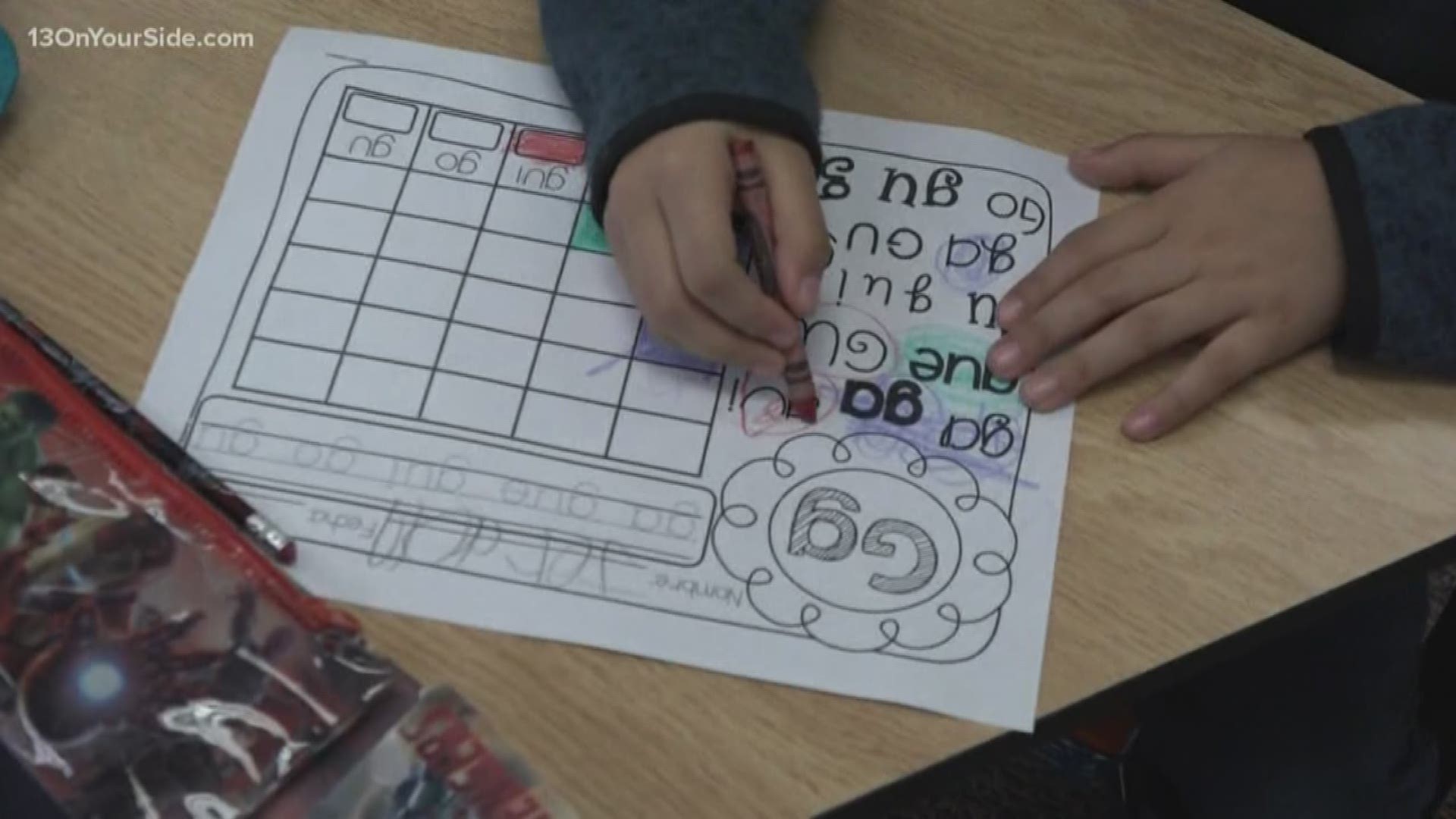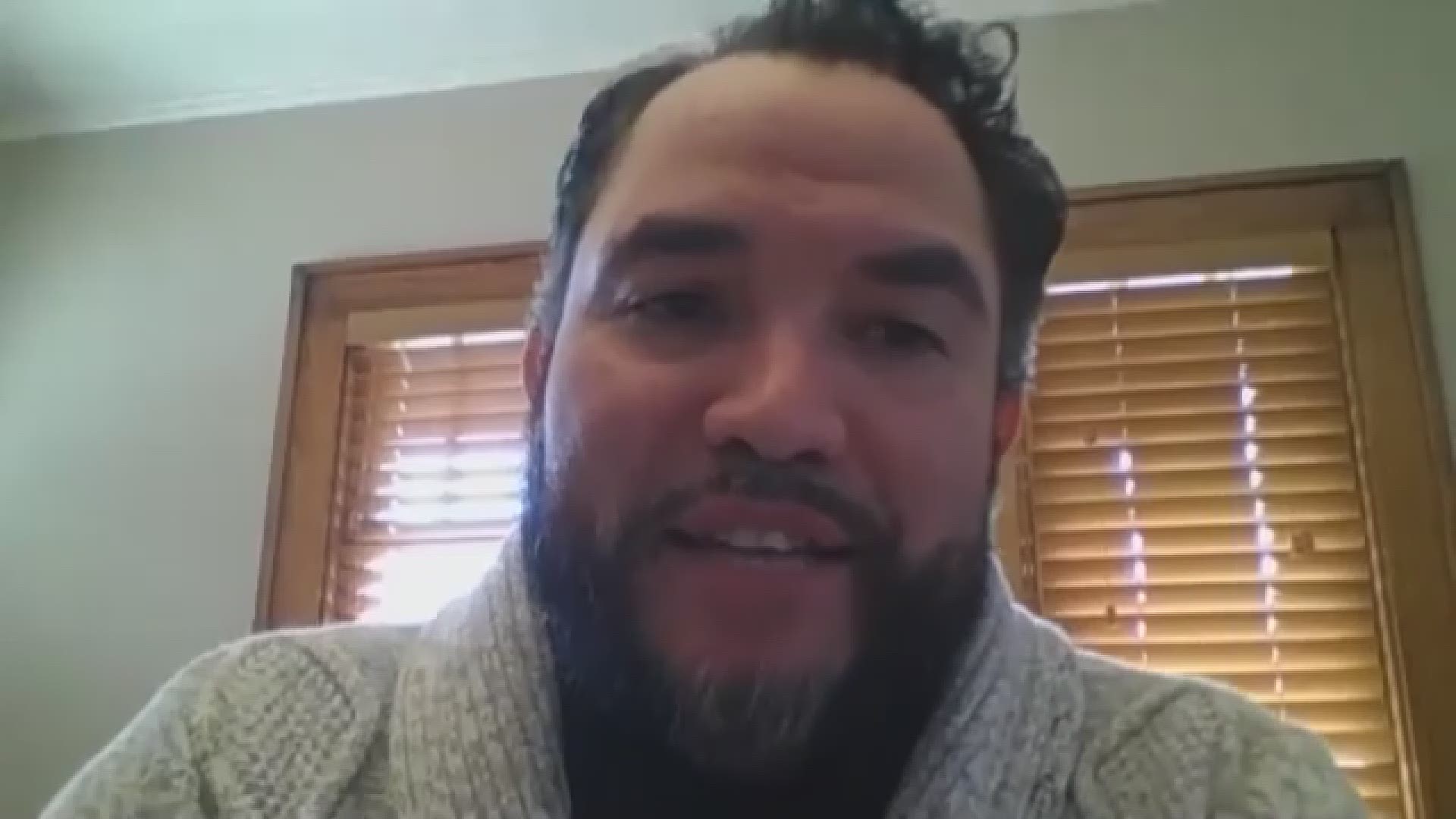GRAND RAPIDS, Mich. — Michigan students are entering the third week since closed due to the COVID-19 outbreak. Many parents have found ways to help their children stay on top of their studies. However, that has proven to be a bigger challenge for other families, due to language barriers.
"If you have children who are learning another language, if you have children who are in monolingual homes, what does that do to their language capacity," says Adnoris 'Bo' Torres, the executive directer for the Hispanic Center of Western Michigan.
As soon as schools closed parents across the state began to search for resources to help educate their children. Many discovered online websites willing to help provide resources. Parents essentially began homeschooling kids during the pandemic. However, Torres says parents that are not fluent in English have found themselves at a disadvantage, and often their children as well.
"You have to address the level of literacy, that a lot of them may or may not have or their capacity to understand when it comes to a different language. So, when you're in monolingual homes and you're receiving things that are not in your language that's a cause for a lot of concern," says Torres. "
He says the center has been working to help by sending learning packets and other materials, in Spanish, to preschool aged children in the community. Those handouts and books help parents stay engaged. Torres says they have also shared links to websites that have been recommended by teachers. However, he says access to technology can often be as big of an issue as language barriers.
"A lot of people in our community clients and a lot of the persons that visit the center may not have a computer at home and may not have accessibility to the internet. They may be using their phone as a hot-spot. If all they have is a telephone as their form of communication, what does that do for that accessibility? he asks. "A lot of people in our community - the LatinX community - that visit the Hispanic Center are not as comfortable as some people would think with navigating systems that are technological. Even having an email, many times, is something that's new. It's something that we've been working with our navigation team to make sure that everyone who comes into the center has an email to be able to access some of these resources that are available. "
Torres says this crisis has underscored how important access is - whether it's access to technology or access to information in a language people can understand.
"I spoke to a mother that was at a food distribution that we held at the Hispanic Center in our parking lot and that mother had not heard of COVID-19," he said. "We've been working very, very closely with a lot of health systems, with health departments and others in the city to make sure people have that language accessibility. We have a great partnership with the Grand Rapids Community Foundation. They have opened up funding to be able to provide some of this much needed resources to the community. So, as hard as we've been working we can work even harder."
Torres says the center has simultaneous interpretation for important messages from the governor that can be translated and out to the community within an hour. However, he says this language barriers do not just exist in Spanish-speaking homes.
RELATED VIDEO:
MORE CORONAVIRUS NEWS:
- Amazon offering free online computer science classes to Grand Rapids students
- Student learns she's valedictorian while working drive-thru because of coronavirus
- Local psychologist and nutritionist gives parents advice on meal prep, reducing stress
- 'We Miss You!' | West Michigan teachers record messages to students while schools are closed
- Alward Elementary teachers hold parade for students amid school closure
►Make it easy to keep up to date with more stories like this. Download the 13 ON YOUR SIDE app now.
Have a news tip? Email news@13onyourside.com, visit our Facebook page or Twitter. Subscribe to our YouTube channel.


